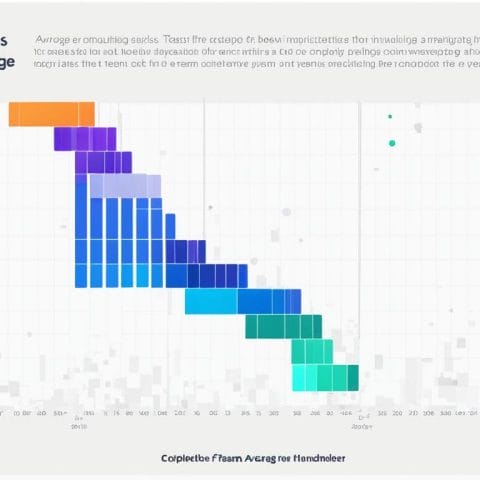The sales landscape is evolving at lightning speed, and intelligent solutions are redefining how teams grow. While technology can’t replicate human connection, it’s transforming traditional methods into something far more powerful. Imagine tools that analyze every conversation, spot hidden patterns, and deliver actionable insights instantly. That’s the reality modern teams leverage to boost performance.
Forward-thinking organizations report 50% higher productivity when blending data-driven feedback with expert mentorship. Why? Machine learning processes thousands of interactions to identify what works—and what doesn’t—at scale. Yet even the smartest algorithms can’t navigate complex emotions or build trust during high-stakes negotiations. That’s where human expertise shines.
The true breakthrough lies in synergy. Teams using hybrid models achieve results neither approach could deliver alone. Real-time analytics sharpen skills faster, while experienced mentors focus on strategic growth. Nine out of ten professionals say these tools save time, letting them prioritize relationship-building and creative problem-solving.
Key Takeaways
- Hybrid coaching models amplify results beyond standalone methods
- Machine learning analyzes data patterns for personalized skill development
- Productivity gains up to 50% reported by early adopters
- Emotional intelligence remains critical for complex negotiations
- Best outcomes emerge from blending technology with human expertise
Introduction: Addressing the Search Intent and Setting the Stage
High-performing organizations thrive on one critical element: strategic skill development. For decades, personalized guidance has driven revenue growth and team success. Yet today’s leaders juggle expanding responsibilities—overseeing 10+ reports while delivering measurable results.

Clarifying the role of coaching in sales
Effective mentorship isn’t optional—it’s the engine of capability-building. McKinsey researchers emphasize:
“Organizations prioritizing skill development see 2x faster rep progression and 35% higher quota attainment.”
But manual methods can’t keep pace with global teams or remote workflows. Consistency becomes elusive when scaling across time zones.
Overview of emerging technological roles
Modern tools now augment mentorship through precision analytics. They identify skill gaps faster than traditional observation, freeing managers to focus on nuanced leadership. Consider these contrasts:
| Challenge | Traditional Approach | Modern Solution |
|---|---|---|
| Scalability | Limited by manager availability | 24/7 accessibility |
| Personalization | Generic feedback loops | Behavior-specific insights |
| Data Utilization | Manual performance tracking | Automated pattern recognition |
Forward-thinking companies blend these methods. Sixty percent of top performers integrate structured guidance into their programs, proving hybrid models drive sustainable growth. The goal? Elevate—not eliminate—human expertise through smarter resource allocation.
Understanding AI Sales Coaching
Next-generation platforms are rewriting the rules of skill development through hyper-responsive analysis. These solutions transform everyday conversations into growth opportunities by detecting patterns invisible to the naked eye.

How instant data processing reshapes strategies
Advanced systems monitor every customer touchpoint—emails, calls, CRM updates—while interactions unfold. Imagine receiving live suggestions during negotiations: “Highlight ROI now” or “Address pricing concerns.” That’s the power of moment-by-moment pattern recognition.
Machine learning models digest thousands of dialogue elements simultaneously. They track vocal pacing, keyword density, and client responses to predict outcomes. One Fortune 500 team saw 27% faster deal closures using these alerts to pivot tactics mid-conversation.
Core components driving intelligent guidance
These platforms combine three breakthrough technologies:
| Technology | Function | Impact |
|---|---|---|
| Natural Language Processing | Evaluates sentiment & engagement levels | Identifies emotional cues in conversations |
| Predictive Analytics | Forecasts deal success probability | Guides resource allocation |
| Adaptive Algorithms | Learns from team-specific patterns | Delivers personalized improvement plans |
Continuous learning engines refine their feedback as your team evolves. They compare current performance against historical benchmarks and industry leaders. This creates a living development roadmap that grows with your organization’s needs.
Actionable insights surface through dashboards that highlight critical improvement areas. Managers spend 40% less time analyzing reports, focusing instead on implementing high-impact changes. The result? Teams that adapt faster and outperform static training models.
Human Sales Coaching: The Traditional Approach
Building trust remains the cornerstone of skill development in client-facing roles. While technology accelerates processes, nothing replaces the spark of genuine mentorship that transforms hesitant newcomers into confident closers.

Strengths of human interaction in sales
Seasoned managers decode what spreadsheets can’t capture—the raised eyebrow signaling doubt, the hesitant pause before objections. These subtle cues become coaching gold when addressed through personalized guidance. One tech firm found reps receiving live feedback from experienced coaches closed deals 22% faster than those relying solely on automated systems.
Traditional methods thrive where algorithms stall. Skilled mentors:
- Spot unspoken concerns through tone shifts and body language
- Tailor advice using decades of real-world negotiation experience
- Build psychological safety for discussing sensitive challenges
This human touch creates loyalty that outlasts quarterly targets. A recent study revealed 78% of reps prefer direct feedback from trusted coaches over system-generated reports. Why? Authentic relationships fuel motivation during tough cycles better than any dashboard notification.
The magic happens when wisdom meets warmth. Veteran managers don’t just correct techniques—they ignite passion through encouragement and shared war stories. This emotional resonance turns transactional interactions into career-defining growth moments.
Can AI sales coaching replace human coaches?
Modern organizations face a critical crossroads in talent development strategies. Intelligent systems now deliver precision guidance at scale, while experienced mentors handle complex relationship dynamics. The winning formula emerges when combining these strengths strategically.

Power Through Precision and Scale
Automated systems process millions of data points to spot winning patterns. They provide consistent feedback across global teams within minutes—not weeks. Teams using these tools achieve 40% faster skill mastery through targeted behavioral adjustments.
| Strength | Technology-Driven | Human-Led |
|---|---|---|
| Availability | 24/7 real-time suggestions | Scheduled sessions |
| Consistency | Uniform standards | Experience-based variations |
| Adaptability | Instant pattern recognition | Contextual understanding |
Navigating Complex Human Dynamics
While systems excel at data crunching, they miss subtle emotional cues. A recent Harvard study found 83% of professionals value personalized encouragement during tough negotiations. This emotional resonance drives long-term growth more effectively than pure analytics.
The most successful programs allocate repetitive tasks to machines. This frees mentors to focus on strategic relationship-building. One enterprise reported 68% higher retention when pairing automated insights with weekly coaching check-ins.
Benefits and Challenges of AI and Traditional Coaching
Forward-thinking teams unlock potential through innovative feedback systems while navigating practical implementation hurdles. The right balance transforms how professionals refine their craft—but requires strategic planning to maximize value.
Key advantages of AI-driven insights
Modern platforms deliver 24/7 skill refinement through behavior-specific analysis. One software company achieved 30% productivity gains by using automated pattern recognition across client interactions. These systems excel in three areas:
- Instant performance tracking across multiple communication channels
- Customized development roadmaps based on individual strengths
- Scalable success strategies derived from millions of data points
Challenges in maintaining data quality and integration issues
Adopting advanced tools demands meticulous preparation. Forty percent of businesses report initial setup complexities when merging new technologies with legacy systems. Common obstacles include:
- High implementation costs straining smaller organizations’ budgets
- CRM synchronization errors creating fragmented workflows
- Team skepticism toward machine-generated recommendations
A recent industry survey reveals 58% of leaders prioritize data hygiene practices before launching intelligent systems. Clean datasets prove essential for generating reliable insights—garbage in truly means garbage out.
Successful teams combine automated precision with human judgment. Those mastering successful integration strategies report 40% faster goal achievement than peers using single-method approaches. The future belongs to organizations that harness both technological power and emotional intelligence.
Hybrid Approaches: Integrating AI Tools with Human Coaching
Tomorrow’s revenue leaders aren’t choosing between tech and talent—they’re merging both. Blending analytical precision with human insight creates performance multipliers that reshape how teams operate. The secret lies in strategic alignment: machines handle repetitive heavy lifting, while mentors tackle nuanced relationship-building.
Optimizing Collaborative Workflows
Start by deploying systems that analyze call patterns and email responses across your entire organization. These platforms flag skill gaps instantly, letting managers focus on high-impact coaching moments. One enterprise software company boosted productivity 30% using this method—their mentors now spend 70% less time hunting for development opportunities.
Three proven tactics drive success:
- Match tools to specific objectives (e.g., negotiation analytics for complex deals)
- Schedule weekly syncs between automated insights and live feedback sessions
- Use interactive role-play simulations to bridge data findings with real-world practice
Industry Leaders Setting the Standard
A telecom giant slashed onboarding time 40% by pairing AI-driven skill assessments with peer mentoring. New hires practice objection handling through digital scenarios first, then refine techniques with seasoned pros. This dual-layer approach accelerates confidence-building while maintaining quality standards.
Another pioneer—ValueSelling Associates—transformed client interactions using adaptive learning modules. Their system delivers micro-lessons during CRM updates, ensuring knowledge sticks when reps need it most. Teams report 25% faster deal cycles and stronger customer relationships as a result.
The winning formula? Treat technology as your always-on analyst and human experts as your strategic advisors. This balance lets organizations scale excellence without losing the emotional intelligence that drives lasting client connections.
Conclusion
Revolutionizing skill development requires mastering the synergy between cutting-edge tools and human expertise. Forward-thinking organizations now leverage platforms like Hyperspace to merge behavioral analytics with mentorship—creating growth strategies that outperform outdated methods.
Modern solutions deliver real-time feedback during client interactions, eliminating bias while scaling personalized guidance. Teams using these tools achieve measurable performance improvements faster than traditional coaching alone allows. Data-driven insights help refine techniques, while experienced mentors focus on relationship-building nuances.
The true differentiator? Combining emotional intelligence with adaptive learning systems. Customers respond to genuine connections that algorithms can’t replicate—yet technology ensures every conversation aligns with proven success patterns. This dual approach drives revenue growth and strengthens client trust.
Ready to transform your team’s potential? Start your Hyperspace free trial today. Experience how intelligent tools amplify coaching effectiveness while preserving the human touch that fuels lasting results.





